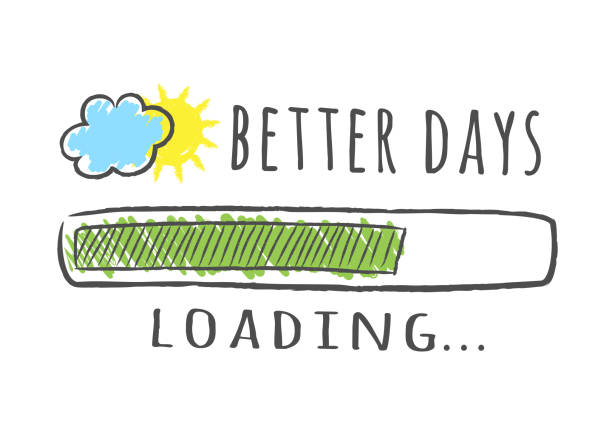
By Rick Kuplinski, SMART Recovery Facilitator
“I need to get well.”
Many of us begin our recovery from addiction with this simple declaration. Perhaps wellness sounds like a modest goal, but it is a huge motivational shift to go from “I don’t have a problem” to “I think I have a problem” to “Maybe I need to do something” to “I need to get well.”
But consider this: Getting even better than well is possible through SMART Recovery. That’s because we focus on getting well through physical sobriety but also on getting better than well by also making emotional sobriety part of our recovery plans.
Physical sobriety is the actual not drinking/not using/not acting out that we practice every day in recovery. It is mandatory (especially for the biological dimension of addiction), but not sufficient for full emotional sobriety (which is more about dealing with the psychological and social dimensions).
Emotional sobriety is the wisdom, compassion, humility, and grace to handle all aspects of our lives maybe even better than we had before we became addicted. It is learning to recognize the difference between truly traumatic situations from which it is necessary to protect ourselves and the merely challenging ones that we can handle without the coping mechanism of our addictions. Emotional sobriety helps prevent setbacks, aids long-term recovery, and improves our general well-being.
And once we appreciate the difference between physical and emotional sobriety, the points, principles, and tools of SMART Recovery come more sharply into focus. For example . . .
Unconditional Acceptance: (See pages 43 through 45 of the SMART Recovery Handbook.) SMART Recovery teaches us to be more practiced in acceptance of self, of others, and of the world in general. While not abandoning hope and action to make things better, we learn to acknowledge reality, to stop demanding that it not exist; and to keep it in perspective (even when unpleasant) This, in turn, helps us better tolerate what we cannot change so we can avoid unnecessary sadness, depression, guilt, shame, anger, irritation, annoyance, resentment, frustration, anxiety, worry, fear, nervousness, panic, inferiority, inadequacy, loneliness, hopelessness, discouragement . . . Wow! That’s quite a list!
Helpful (Rational) vs. Unhelpful (Irrational) Thinking: (See pages 45 through 48 of the SMART Recovery Handbook.) Even when people are “well” by most all measures, we still sometimes hold on to some beliefs about ourselves or the world that: 1. Aren’t exactly true; 2. Don’t really make sense; and 3. Tend to cause harm when the belief is followed or acted upon. Learning to recognize and dispute unhelpful beliefs is a great way to avoid the physical temptation to repeat our addictive behavior that is fueled by “stinking thinking.” It also helps us be better than well by having stronger emotional balance—even long after coping with urges is a daily concern.
The ABC Tool: (See pages 39 through 42 and 50 through 53 of the SMART Recovery Handbook.) The ABC Tool is the Swiss Army Knife of SMART Recovery, i.e., one tool with a variety of applications for both physical and emotional sobriety. ABC can be used to cope with urges, to deal with emotional upsets, and to retrace the history of a bad decision to better understand how to make better choices in the future.
Living a Balanced Life: (See pages 58 through 71 of the SMART Recovery Handbook.) Regaining health and creating a satisfying lifestyle is important for getting better than well. In our SMART Recovery meetings, we emphasize three things:
- What are the areas of our lives where we want to devote time and energy? How satisfied are we with the focus and effort we are devoting to each? How do we begin creating better balance?
- What areas of self-care might we have neglected in addiction? What will be our focus in recovery for taking better care of ourselves?
- What are the things we want to be passionate about in recovery—interests or pursuits that the freedom from addiction makes possible for us to do (or do again) with renewed energy and vigor?
Getting even better than well takes motivation, patience, and daily practice in applying what SMART Recovery teaches. And the process plays out differently and at a different pace for all of us individually. But getting there is possible, and it represents The Quantum Shift in recovery. That sounds like something out of the movie The Matrix, but it is just a jazzy way to describe when we come to the realization that without addiction: “Life is better this way. I like me more like this. I am now living a life in which addiction no longer fits. I feel . . . better than well.”
Looking to get getting even better than well from addiction? SMART Recovery is a science- and evidence-based program that provides educational and peer support to those who want to abstain and gain independence from all addictive behaviors, whether or not they involve alcohol or drugs. The program emphasizes building motivation and self-empowerment skills, employing strategies to control urges, managing thoughts at the root of addictive behaviors and living a healthy, balanced life. Go to the “Meetings” tab at www.smartrecovery.org to find an in-person or online meeting to attend.
